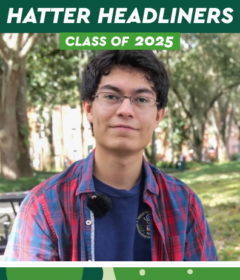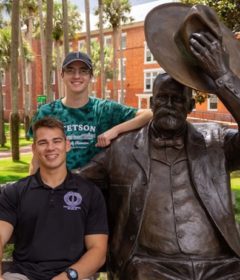Letter to APA on policy statement on violent media
In an effort to change the cultural dialogue about violence in media causing aggression in teenagers, an international group of 228 media scholars, psychologists and criminologists recently sent this open letter to the American Psychological Association (APA) asking it to reconsider its position on the effects of violence in the media.
Dear APA Science Directorate:
As you know, many individuals within the scientific community have been concerned about the APA’s past policy statements on violent media. Many of us welcome the APA’s review of past policy statements, but also worry about potential pitfalls within that process. Given, that approximately 230 media scholars, psychologists and criminologists have signed a statement urging the APA to refrain in the future from declarative policy statements as these are likely to do more damage to the field and mislead the public than be helpful. I attach the statement below.
Cordially,
Christopher J. Ferguson
Stetson University
Statement:
(Updated 9/25/13)
We welcome the appointment of a Task Force charged with examining research on media violence, and previous statements on the subject by the APA. The issue of video game and other media violence continues to be contentious among both the general public and the scholarly community. Particularly in the wake of the Sandy Hook shooting, whether rightly or wrongly, much discussion has focused on this issue. Much is at stake regarding the way scientific information is communicated to the general public, the way in which policy statements can set scientific agendas and the credibility of the field as a careful and objective science. We very much welcome the appointment by the APA of a new Task Force to revisit the issue, pursuant to new research that has questioned previously held views. We appreciate the APA’s efforts to revisit the topic and believe that, given the scientific progress in the field, there are unprecedented opportunities to develop a solid basis for a careful and nuanced communication of research findings to the general public. We also express concern that there are risks involved, particularly in light of methodological and sociological issues well known to impact this field. Below we highlight several issues that we hope the APA Task Force will consider as they reflect on this matter.
We express the concern that the APA’s previous (2005) policy statement delineated several strong conclusions on the basis of inconsistent or weak evidence. Research subsequent to that 2005 statement has provided even stronger evidence that some of the assertions in it cannot be supported. As an important scientific discipline that helps shape the public discourse on issues of behavior, policy statements that are rigid or ideological can serve to stifle scientific innovation and new theories and may inadvertently serve to increase publication bias, particularly given concerns about both disregard for null findings and researcher degrees of freedom (Simmons et al., 2011).
Against this background we further express the belief that it is possible for responsible scholars to make good faith arguments both that media violence may have some influence on aggression or other outcomes, or that media violence may not have such effects. Similarly, we believe that pressure to produce “positive” findings is present throughout the review and publication process as well as in grant-seeking. Obviously, positive findings should certainly be welcomed, but so should “negative” findings or failed replications. Without care taken to encourage publication of non-replications, we will not have a full view of the data in this field.
We also acknowledge that meta-analysis has its place, but express the concern that meta-analysis in this realm can be misleading. For instance, many previous meta-analyses have relied on bivariate effect sizes, which is normal due to the homogeneity assumption of meta-analysis, but which may be of limited value in this realm. As a simple matter, boys both consume more violent media and are more aggressive, so small correlations may reflect gender effects. Naturally, other variables may well explain small correlations as well. From our observation, considerable research data bears this belief out. Unfortunately, it is our observation that, in communicating results to the general public, scholars and the APA’s previous policy statements have tended to focus on bivariate effect sizes, which may be more misleading than informative. Similarly we are skeptical of a “the average effect size wins” approach to meta-analysis, which could be used to smooth over inconsistencies and failed replications. Previous meta-analyses have disagreed on the presence of publication bias, but given the issue of researcher degrees of freedom, some forms of scholar-driven bias may simply be hard to detect.
We also express concern about the overgeneralization of controversial laboratory measures of aggression to public health issues and violent crime. Laboratory measures certainly have their place, but we believe that greater caution should be used in generalizing them to real-life behaviors they may only obliquely measure. Further, the unstandardized and “ad hoc” nature of many of these measures is of concern to us, given they may create false positives.
During the video game epoch, youth violence in the United States and elsewhere has plummeted to 40-year lows, not risen as would have been expected if the 2005 APA resolution were accurate. Although we do not assert video games are responsible for this decline (such would be an ecological fallacy), this decline in societal violence is in conflict with claims that violent video games and interactive media are important public health concerns. The statistical data are simply not bearing out this concern and should not be ignored.
Fundamentally, we are of the belief that the task force has a tremendous opportunity to change the culture of this research field to one which is less ideological and open to new theories, data and beliefs. So too, should scholars feel free to argue for existing theories. We believe that the field is beginning to undergo theoretical and data-driven changes that challenge previously held beliefs. Only with the freedom for data to sort itself out can this field progress. We would endorse any attempt to properly reflect these differences in data, theories, and beliefs. Such a policy statement might be less conclusive, but certainly more sophisticated, and it could do much to restore the credibility of this field. Policy statements based on inconsistent and weak evidence are bad policy and over the long run do more harm than good, hurting the credibility of the science of psychology. We are certainly happy to help the Task Force however we can in support of their important work.
Signed:
Paul Adachi, Brock University
Jason C. Allaire, North Carolina State University
James Anderson, University of Utah
Len Annetta, George Mason University
Jeffrey Jensen Arnett, Clark University
Dominic Arsenault, Université de Montréal
Mary Ballard, Appalachian State University
Jaime Banks, University of Toronto
Wolmet Barendregt, University of Gothenburg
Martin Barker, Aberystwyth University
Matthew Barr, University of Glasgow
Anthony Bean, Pacifica Graduate Institute
Kevin Beaver, Florida State University
Katrin Becker, Mount Royal University
Gary Bente, University of Cologne
Fran Bernat, Texas A&M International University
Kristin Bezio, University of Richmond
Rafael Bienia, Maastricht University
Staffan Björk, University of Gothenburg
Jerald Block, Oregon Health and Science University
Fran C. Blumberg, Fordham University
Leonardo Bobadilla, Western Carolina University
Walter Boot, University of Florida
Randy Borum, University of South Florida
Wolfgang Bösche, Technische Universität Darmstadt
Nicola Bowes, Cardiff Metropolitan University
Nick Bowman, West Virginia University
Linda Breitlauch, GA University for Applied Sciences, Berlin
Johannes Breuer, University of Münster
Douglas Brown, Brunel University
Jo Bryce, University of Central Lancashire
David M. Buss, University of Texas
Jon Cabiria, Walden University
Kursat Cagiltay, Middle East Technical University
Alessandro Canossa, Northeastern University
David Canter, University of Liverpool
Rogelio E. Cardona-Rivera, North Carolina State University
Ineke Pit-ten Cate, University of Luxembourg
Adam Chapman, University of Hull
Isabelle D. Cherney, Creighton University
Anne Collier, Connectsafely.org
John Colwell, University of Westminster
Lorenza Colzato, Leiden University
Mia Consalvo, Concordia University
Victoria Cooper, University of Leeds
Patrick J. Coppock, University of Modena and Reggio Emilia
Aysegul Bakar Corez, Kocaeli University
Mark Coulson, Middlesex University
Francis G. Couvares, Amherst College
Angelica Ortiz de Gortari, Nottingham Trent University
Frederik De Grove, Ghent University
Bob de Schutter, Miami University
Jonathan deHaan, University of Shizuoka
Jennifer deWinter, Worcester Polytechnic Institute
M. Brent Donnellan, Michigan State University
Brock R. Dubbels, McMaster University
Robert Andrew Dunn, East Tennessee State University
Kevin Durkin, University of Strathclyde
Malte Elson, University of Muenster
Dorothy Espelage, University of Illinois ~ Champaign
Frank Farley, Temple University
Thorsten Fehr, University of Bremen
Christopher J. Ferguson, Stetson University
F. Richard Ferraro, University of North Dakota
Emmanoel Ferreira, Universidade Federal Fluminense
Seymour Feshbach, University of California, Los Angeles
Jon Festinger, Centre for Digital Media
James Alan Fox, Northeastern University
Claudio Pires Franco, University of Bedfordshire
Jonathan Freedman, University of Toronto
Johannes Fromme, University of Magdeburg
Philippe Geril, Ghent University
Sabine Glock, University of Luxembourg
Jeffrey Goldstein, University of Utrecht
Eva Oliveira Gonçalves, Polytechnic Institute of Cavado and Ave
Peter Gray, Boston College
Michael B. Greene, Rutgers University
Mark Griffiths, Nottingham Trent University
Matthew Grizzard, University at Buffalo, The State University of New York
John Grohol, Psych Central
Whitney D. Gunter, Western Michigan University
Robin L. Haislett, Texas Tech University
Ryan Hall, University of Central Florida
Karla Hamlen, Cleveland State University
Jessica Hammer, Columbia University
Rick Hartley, University of Texas – San Antonio
Elizabeth Hayward, New York University
Moritz Heene, Ludwig Maximilian University
Rani Desai Hoff, Yale University
Robert Hoff, Mercyhurst University
Stephen Holmes, University of Central Florida
Bruce Homer, CUNY
Aaron Chia Yuan Hung, Adelphi University
Ioanna Iacovides, University College London
Mimi Ito, University of California ~ Irvine
James D. Ivory, Virginia Polytechnic Institute and State University
Adrienne Holz Ivory, Virginia Polytechnic Institute and State University
Kevin Jackson, RMIT University, Vietnam
Jeroen Jansz, Erasmus University Rotterdam
Daniel Johnson, Queensland University of Technology
Kristine Jørgensen, University of Bergen
Faltin Karlsen, The Norwegian School of Information Technology
James C. Kaufman, University of Connecticut
John Kilburn, Texas A&M International University
Daniel King, The University of Adelaide
Dana Klisanin, Evolutionary Guidance Media
Julia Kneer, Erasmus University Rotterdam
Carly A. Kocurek, Illinois Institute of Technology
Hartmut Koenitz, University of Georgia
Kyle Kontour, Montana State University – Billings
Rachel Kowert, University of Muenster
Nicole Krämer, Universität Duisburg-Essen
Tanya Krzywinska, Falmouth University
Krishna Kumar, West Chester University
Kenneth Lachlan, University of Massachusetts ~ Boston
Petri Lankoski, Södertörn University
Robert E. Larzelere, Oklahoma State University
Olli Tapio Leino, City University of Hong Kong
Roger J. R. Levesque, Indiana University
Mark Lewis, SUNY Empire State College
Anthony M. Limperos, University of Kentucky
Holin Lin, National Taiwan University
Jonas Linderoth, University of Gothenburg
Anders Sundnes Løvlie, Gjøvik University College
Amy Lu, Northwestern University
Esther MacCallum-Stewart, University of Surrey
Mike Males, Center on Juvenile and Criminal Justice
Charlotte N. Markey, Rutgers University
Patrick Markey, Villanova University
Frans Mäyrä, University of Tampere
Catherine McBride-Chang, Chinese University of Hong Kong
Alan Meades, Canterbury Christ Church University
Dawna-Cricket-Martika Meehan, Miami University’s Center for School Based Mental Health Programs
Jean Mercer, Stockton College
Konstantin Mitgutsch, Massachusetts Institute of Technology
Boris Mlacic, Institute of Social Sciences Ivo Pilar
Ro Mohseni, Universität Osnabrück
David Moshman, University of Nebraska—Lincoln
Barbara Müller, Ludwig Maximilian University Munich
Shane Murphy, Western Connecticut State University
Glenn W. Muschert, Miami University of Ohio
Charles Negy, University of Central Florida
Mark Nielsen, The University of Queensland
Cheryl Olson, Independent Media Researcher
Jim Parker, University of Calgary
Hal Pashler, University of California ~ San Diego
Julian Petley, Brunel University
Bernard Perron, Université de Montréal
Oscar Peters, University of Twente
Tamara Peyton, Pennsylvania State University
Daniel Pietschmann, Chemnitz University of Technology
Steven Pinker, Harvard University
Jan L. Plass, New York University
Nathaniel Poor, Independent Researcher
Patrick Portz, RWTH Aachen University
Andrew Przybylski, University of Oxford
Thorsten Quandt, University of Muenster
Joost Raessens, Utrecht University
Dennis Ramirez, University of Wisconsin – Madison
Niklas Ravaja, Aalto University
Christina Regenbogen, University of Bremen
Leonard Reinecke, Johannes Gutenberg University Mainz
Peter J. Rentfrow, University of Cambridge
Richard Rhodes, science writer and Pulitzer Prize winner
Albert “Skip” Rizzo, University of Southern California
Christian Roth, VU University of Amsterdam
Martin Roth, Leiden University
Thomas Henry Rousse, Northwestern University
Dana Ruggiero, Bath Spa University
Pamela Brown Rutledge, Media Psychology Research Center
Richard Ryan, University of Rochester
Alyea Sandovar, Fielding Graduate Institute
Joanne Savage, American University
Mike Schmierbach, Pennsylvania State
Christina Schumann, TU Ilmenau – Institut für Medien und Kommunikationswissenschaft
Karen Schrier, Marist College
Felix Schroeter, University of Hamburg
Daniel Schultheiss, Ilmenau University of Technology
Marcus Schulzke, State University of New York at Albany
Seth Schwartz, University of Miami
Digdem Sezen, Istanbul University
Tonguc Ibrahim Sezen, Istanbul Bilgi University
Todd K. Shackelford, Oakland University
Josh Sheldon, Massachusetts Institute of Technology
John Sherry, Michigan State University
Daniel Simons, University of Illinois at Urbana-Champaign
Marko Skoric, City University of Hong Kong
Gillian Smith, Northeastern University
Ian Spence, University of Toronto
Kurt Squire, University of Wisconsin – Madison
Karen Sternheimer, University of Southern California
Marko Siitonen, University of Jyväskylä
Dean Keith Simonton, University of California, Davis
Ian Sturrock, Glyndwr University
Kaveri Subrahmanyam, California State University – Los Angeles
Joanne Broder Sumerson, St. Joseph’s University
Raymond Surette, University of Central Florida
Joshua Tanenbaum, Simon Fraser University
Morgan Tear. The University of Queensland
Anne Mette Thorhauge, University of Copenhagen
Angela Tinwell, University of Bolton – UK
Hakan Tuzun, Hacettepe University
Jan Van Looy, Ghent University
Antonius J. van Rooij, IVO Addiction Research Institute
John A. Velez, Ohio State University
Matthew Ventura, Florida State University
Edelyn Verona, University of Illinois at Urbana–Champaign
Gerald Voorhees, University of Waterloo
Edward Vul, University of California ~ San Diego
Frank Waddell, Pennsylvania State University
Annika Waern, Uppsala University ~ Sweden
Eric-Jan Wagenmakers, University of Amsterdam
Nia Wearn, Staffordshire University
Danny Wedding, Alliant University
Karin Wenz, Maastricht University
Johanna Weststar, Western University ~ Ontario
Lauren White, Fielding Graduate University
Matthew M. White, Penn State University
Dmitri Williams, University of Southern California
Teena Willoughby, Brock University
Tobias Winnerling, Düsseldorf University
Donghee Yvette Wohn , Northwestern University
Michelle Wright, Masaryk University
Talmadge Wright, Loyola University Chicago
R. Michael Young, North Carolina State University
Jose Zagal, DePaul University
Nelson Zagalo, University of Minho
Simmons, J. P., Nelson, L. D., & Simonsohn, U. (2011). False-positive psychology: Undisclosed flexibility in data collection and analysis allows presenting anything as significant. Psychological Science, 22(11), 1359-1366. doi:10.1177/0956797611417632



